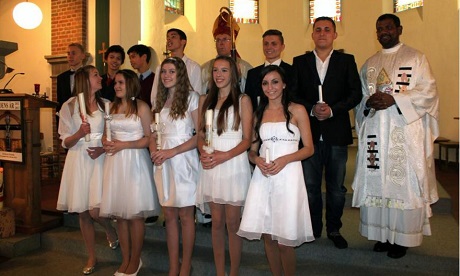The Catholic Church wants to change its way of doing catechesis and its way of looking at catechism.
On June 25 The Pontifical Council for Promoting the New Evangelisation released a new Directory for Catechesis.
Previously catechesis was the responsibility of the Congregation for the Clergy.
The new directory underlines that every baptised person is a missionary called to find new ways of communicating the faith with commitment and responsibility.
It proposes three major principles of action: Witnessing, Mercy and Dialogue.
The new directory also adds new content on contemporary issues like sex, gender, the digital age and medical advancements.
“The need for a new directory was born of the process of inculturation which characterises catechesis in a particular way and which, especially today, demands a special focus,” said the president of the Pontifical Council for the Promotion of the New Evangelisation Archbishop Rino Fisichella.
He says the guiding criterion for the new edition is to deepen the Church’s understanding of the role of catechesis in evangelisation.
Fisichella says he hopes the Directory will promote “a pastoral conversion in order to free catechesis from some choke-holds that prevent its effectiveness.”
He says the first choke-hold is treating catechesis as if it were a school subject with information a teacher imparts to students according to a fixed calendar and with a fixed text.
Rather, the Directory’s focus is on the process of leading a person to a personal relationship with Jesus in the church community and to a life lived visibly with Christian values, particularly through works of mercy and charity.
Timing of Confirmation
According to Fisichella the second choke-hold “is the mentality by which catechesis becomes the condition for receiving a particular sacrament of initiation, with a consequent void opening up once initiation has ended.”
He said sacraments, particularly the Sacrament of Confirmation can be exploited in the name of pastoral strategy.
Too often the sacrament is delayed to “blackmail” young people into continuing to come to church, said Fisichella.
He said he would never “go to war” over the proper age to administer the sacrament of confirmation.
Evangelising is not primarily about transmitting doctrine … it is about making Jesus Christ present and proclaiming Him,” the Directory points out.
Digital age
Another issue the Directory covers involves the changes brought by the digital age and warns that if teachers of faith fail “to evaluate these technologies correctly the catechesis “runs the risk of it being insignificant for many people.
“The real question is not about knowing how to use the new technologies for evangelisation, but how to become an evangelising presence on the digital continent,” it explains.
The new Directory looks “realistically at the heterogeneous family realities, with their lights and shadows, in order to accompany them adequately” as well as migrants’ pastoral care, the environment, capital punishment and any type of abuse.
It includes the great contribution of women to catechesis, the formation of catechists and affirms “it is important that through catechesis each person discovers that it is worth believing”.
Source
